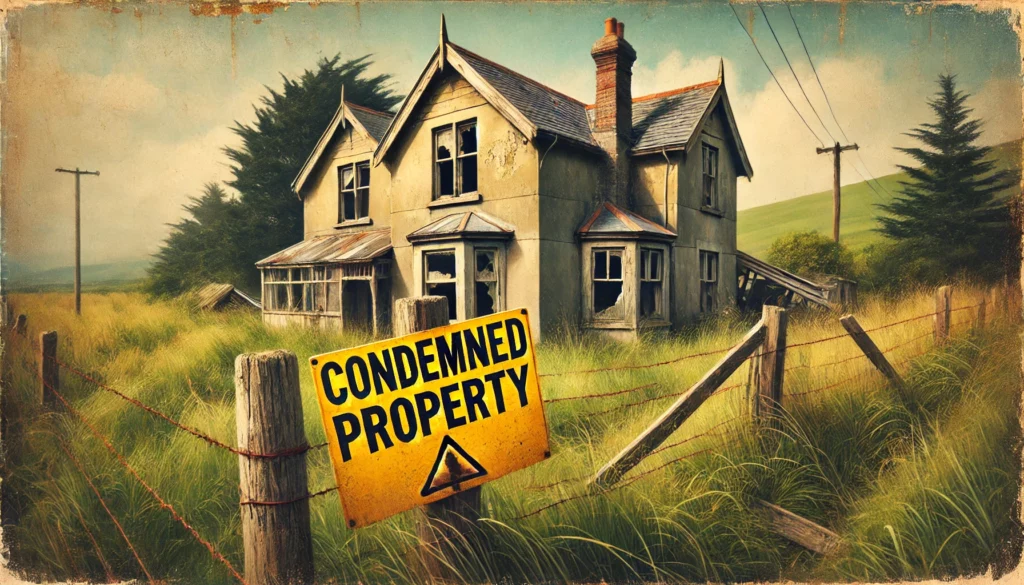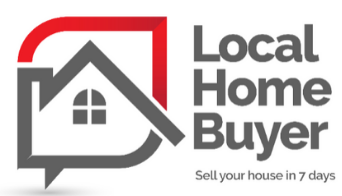What Does It Mean for a House to Be Condemned in Virginia?

Introduction
If you’re searching for “What Does It Mean for a House to Be Condemned in Virginia?”, chances are you’re feeling overwhelmed, uncertain, and possibly a little frustrated. Perhaps you’re dealing with a property that has been declared uninhabitable due to various violations—whether it’s from structural issues, health and safety concerns, or violations of local housing codes. You might be unsure of what this designation means for your home and your options moving forward. You may be trying to understand if it’s worth fixing the property, selling it, or even wondering what selling a condemned property means in practical terms. The weight of dealing with property that is now considered unsafe or unfit to live in can feel heavy, but it’s important to remember that you’re not without options.
You likely want to understand the legal implications, the potential costs, and whether it’s possible to sell a condemned house at all. In addition, you’ll probably want to weigh the advantages and disadvantages of keeping the property versus selling it—especially if you’re concerned about the amount of money you’d need to invest in repairs to bring the house back to a livable state. Selling to cash buyers may seem like a viable option, but you want to make sure you’re making the right decision. This blog is here to provide answers, break down the process, and give you the insight you need to make the best choice for you and your property.
What Does It Mean for a House to Be Condemned in Virginia?
A condemned house in Virginia typically refers to a property that has been deemed unfit for habitation due to health, safety, or structural concerns. This designation is generally issued by local authorities or government inspectors when they believe the property poses significant risks to the people living in or near it. Whether it’s due to mold, severe structural damage, or violations of local building codes, a condemned property is essentially considered uninhabitable until repairs are made.
Being in the position of owning a condemned property can be distressing, especially when you’re unsure about how to proceed. You may be asking yourself questions like: Can I still sell my house if it’s condemned? or What steps do I need to take to fix the issues? Unfortunately, these houses are often beyond a simple renovation, and it’s important to understand the options available for selling or fixing them. If you’re looking for a solution, selling your condemned house to a cash buyer may be an option worth considering, and we’ll explore why in this blog.
Before we dive into the specifics of selling a condemned house, it’s essential to understand why your house might be condemned and how this impacts your ability to sell it.
Why Does a House Get Condemned in Virginia?
In Virginia, a house can be condemned for a variety of reasons, but typically it’s because the structure no longer meets the basic health and safety standards set by local or state authorities. This designation is serious and can have significant consequences for the homeowner. Let’s break down some common reasons why a house might be condemned:
- Structural Damage: A house may be condemned if it suffers severe structural damage, such as foundation issues, collapsed walls, or significant roof damage. These types of issues can make the house unsafe to live in and pose risks to anyone who enters.
- Health and Safety Hazards: Conditions like severe mold infestations, sewage backups, or issues with the plumbing or electrical systems could lead to a condemnation order. These hazards can create serious health risks, making the property unsafe for occupancy.
- Code Violations: Homes that fail to meet local building codes or zoning laws, particularly when it comes to health, safety, and habitability, may be condemned. Violations could include everything from unsafe wiring to improperly installed plumbing or even an overgrown yard that creates hazards.
- Fire Damage: In some cases, houses that have suffered significant fire damage may be condemned. This could be due to structural damage, the potential for mold growth after water used to put out the fire, or unsafe conditions caused by smoke damage.
- Natural Disasters: If a home is in an area that’s frequently affected by floods, earthquakes, or severe storms, the property may be condemned if it’s left unrepaired for too long. These properties can pose safety risks to occupants and neighbors.
What Are the Consequences of Owning a Condemned Property?
Owning a condemned property can have numerous consequences for the homeowner. The most immediate consequence is the loss of the ability to live in or rent out the property. Not only does this restrict your options for using the property, but it also greatly reduces the property’s market value. This reduction in value can make it difficult to sell through traditional methods, especially when you consider the time and money needed to make repairs.
If the house remains condemned for an extended period, it can lead to other issues such as:
- Legal Issues: If a property is condemned, the local government may take legal action to force repairs, or even seize the property if the owner refuses to make necessary improvements. You can refer to Virginia’s Housing Code for more on the state’s regulations regarding condemned properties.
- Ongoing Maintenance Costs: Even though the property may not be habitable, it may still incur costs such as property taxes, insurance premiums, and utility bills, which can add financial strain on the homeowner.
- Difficulty Selling: You might find it challenging to sell the property, especially through traditional means, as potential buyers might be hesitant to take on a property that requires extensive repairs. This is where selling to cash buyers could become an attractive option. You can explore the Benefits of Selling a Condemned House to Cash Buyers to see why this could be a faster, more reliable solution.
Understanding the financial and legal consequences of owning a condemned house can help you make informed decisions moving forward. Whether it’s selling to a cash buyer or choosing to invest in repairs, it’s critical to weigh all your options.
Can You Sell a Condemned House in Virginia?
Yes, it’s possible to sell a condemned house in Virginia. However, selling a condemned property through traditional methods can be incredibly difficult due to the extensive repairs and legal hurdles that may need to be overcome. The house’s value will likely be significantly lower, and buyers may be hesitant to take on the risk and cost of renovation.
That said, selling a condemned house to a cash buyer is often the most viable option. Cash buyers, such as real estate investors, are typically more willing to purchase houses in poor condition because they can handle the repairs and legal work themselves. This option allows homeowners to sell the property quickly, often in as little as a week, without having to deal with the costly and time-consuming process of making repairs themselves.
When selling to a cash buyer, you may also benefit from the following:
- Quick Sale: Cash buyers can close quickly, often in 7–14 days, allowing you to move on from the property without waiting months for a buyer.
- No Repairs Needed: Cash buyers purchase properties in any condition, so you don’t have to spend money on repairs to bring the house up to code.
- Avoiding Agent Fees: Selling to a cash buyer eliminates the need for a realtor, meaning you avoid commission fees that could be as high as 6% of the sale price.
If you are interested in learning more about selling a condemned property to a cash buyer, check out our page How to Sell a Condemned House for Cash for more in-depth information.
Should You Sell Your Condemned House to a Cash Buyer?
While selling a condemned house to a cash buyer may seem like the easiest option, there are both advantages and disadvantages that you need to consider. Let’s break down the benefits and drawbacks:
Advantages of Selling to a Cash Buyer
- Speed: Cash buyers can close quickly, often within 7–14 days. If you’re dealing with a condemned property, this can help you avoid prolonged legal battles or additional property taxes.
- No Repair Costs: Cash buyers buy houses as-is, which means you won’t have to spend money on repairs. This can be a huge benefit if your house is in need of significant work and you don’t have the funds or desire to fix it yourself.
- Avoid Foreclosure or Tax Liens: If you’re at risk of foreclosure or have significant tax liens on the property, selling to a cash buyer can help you avoid further financial stress. The sale can provide you with much-needed cash to settle debts or move on to other opportunities.
Disadvantages of Selling to a Cash Buyer
- Lower Sale Price: While selling to a cash buyer can be faster and more convenient, you may not get as much money for your property as you would through traditional methods. Cash buyers often buy properties at a steep discount due to the risk they take on by purchasing a condemned house.
- Potential Scams: Not all cash buyers are reputable. Some may take advantage of homeowners in difficult situations by offering lowball prices or using high-pressure sales tactics.
Conclusion: Is Selling a Condemned House the Right Choice for You?
In conclusion, selling a condemned house can be a difficult decision, but for many homeowners, it offers the most practical solution to avoid costly repairs and legal complications. While there are clear benefits to selling to cash buyers—such as a fast sale and no need for repairs—there are also potential downsides, like a lower sale price.
If you’re dealing with a condemned property and don’t want to invest time and money into fixing it, selling to a reputable cash buyer like Local Home Buyer could be your best option. We specialize in buying houses in any condition, including condemned properties, and can offer you a quick, hassle-free sale. Our process is simple, and we can close in as little as 7–14 days, ensuring that you can move on from your property quickly and with minimal stress.
If you’re ready to explore your options and want to avoid the headaches of dealing with a condemned property, reach out to Local Home Buyer today for a fair cash offer and start the process of selling your house with ease.
